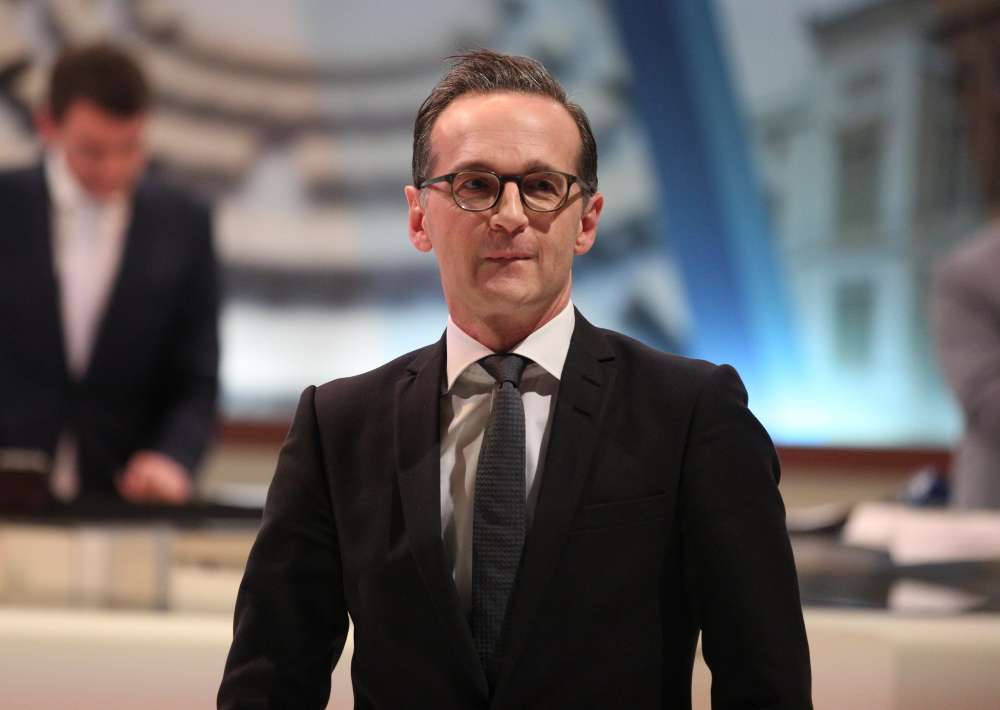Lessons From the Lex Facebook Defeat

On Friday, the German parliament will pass the gloriously named and woefully misguided Netzwerkdurchsetzungsgesetz, or “network enforcement law,” to combat hate speech on social media platforms. Its parliamentary godfathers simply call it the “Facebook law” and commend it as “epochal” and “unique.” Unique it is, but in some of the worst possible ways.
The law requires operators of online platforms with more than 2 million registered users to delete “evidently unlawful” content within 24 hours. Where (un)lawfulness is not obvious, operators have up to seven days to make a decision. They can take longer if users are asked to weigh in, or if they pass the decision onto a joint industry body. If companies fail to comply with these stipulations, they face penalties of up to €50 million. In effect, the law privatizes the enforcement of existing laws on hate speech, defamation and incitement to violence.
Its passage is a crushing defeat for US social media operators such as Facebook, Google/YouTube and Twitter. They lobbied ferociously against the law. And they did some things right. With the help of the industry association Bitkom they built a broad “Alliance on the Freedom of Expression” that included a cast of unlikely bedfellows, ranging from the libertarian Chaos Computer Club and left wing NGOs to leading business players.
Their arguments against the bill were sound. The alliance pointed to the problem of outsourcing law enforcement to private companies who will become judges over complex free-speech questions. Facebook reasonably argued that shifting the responsibility for deficits in enforcement to private companies cannot be the answer. Also, if the only punishment for online criminals is blocking and erasing their posts, then this is hardly a deterrent. Furthermore, given the significant fines, companies would err on the side of over-blocking – in effect a new and arbitrary form of censorship.
All these arguments failed to sway those pushing the law. During the parliamentary review process, lawmakers did correct some of the many sloppy errors in the hastily written draft. The biggest concession was to introduce the option of having difficult cases decided by joint private bodies approved by the ministry (“regulated self-regulation”). But these bodies do not fundamentally change the flawed logic of outsourcing law enforcement to private firms.
There are deeper reasons for the failure of US social media companies to prevent the new law. Appearing “tough” on US social media behemoths is popular with the German public. Justice minister Heiko Maas, a Social Democrat is the intellectual father of the law, alongside CDU parliamentary leader, Volker Kauder and SPD leader, Thomas Oppermann and he could point to an opinion poll according to which 70 percent of Germans support his brainchild.
Facebook and Twitter also created the impression that they did not take the issue of hate speech seriously and dragged their feet in cooperating with German law enforcement. Facebook’s Mark Zuckerberg was personally put on notice by Chancellor Angela Merkel in the fall of 2015, when she pressured him to crack down on hate speech.
Over the following year, as part of a joint working group, Mr. Maas pushed the social media companies on voluntary self-commitments. In vain, Mr. Maas claims: Facebook has only deleted 39 percent of what he deems unlawful content on its platform; Twitter only 1 percent. As a result, Facebook and others have little public credibility. The dominant perception in Germany is – not implausibly ‑that the companies want to escape regulation and disavow the public role they now play in liberal democracies.
Now Facebook and its ilk urgently need to win back the German public’s trust. Here is what they should do:
First, they should publicize the dilemmas they face in complying with the new law. They could use the mandatory reports on the implementation of the new law to detail concrete cases in which they are forced to take difficult, if not impossible, decisions on the lawfulness of certain speech. This will inform public opinion and efforts to tweak the law in future. Such evidence would also help legal challenges that are already being prepared.
Second, Facebook and others should offer to set up a one-click interface for users to report content to law enforcement. That would give credibility to their argument that it should still be prosecutors and judges deciding on what is, and is not, criminal.
Third, companies should be fully transparent about their guidelines for erasing content. Until now, Facebook has been reluctant to disclose its procedures. Unless it becomes more forthcoming, it will need to live with sensationalism such as this recent headline in the New York Times: “Facebook’s Secret Censorship Rules Protect White Men from Hate Speech But Not Black Children.”
Fourth, the unique campaign that came together to lobby against the new law should continue to advocate for beefing up law enforcement, so that the state is actually able to fulfill its role.
Facebook, Twitter and their peers were slow in seeing the threat posed by this bad law. Now, during its implementation, they would be well advised to work hard to rebuild their credibility.
…
This commentary was originally published by Handelsblatt Global on June 26, 2017. Research for this publication was conducted as part of the Transatlantic Digital Debates (TDD) program.







